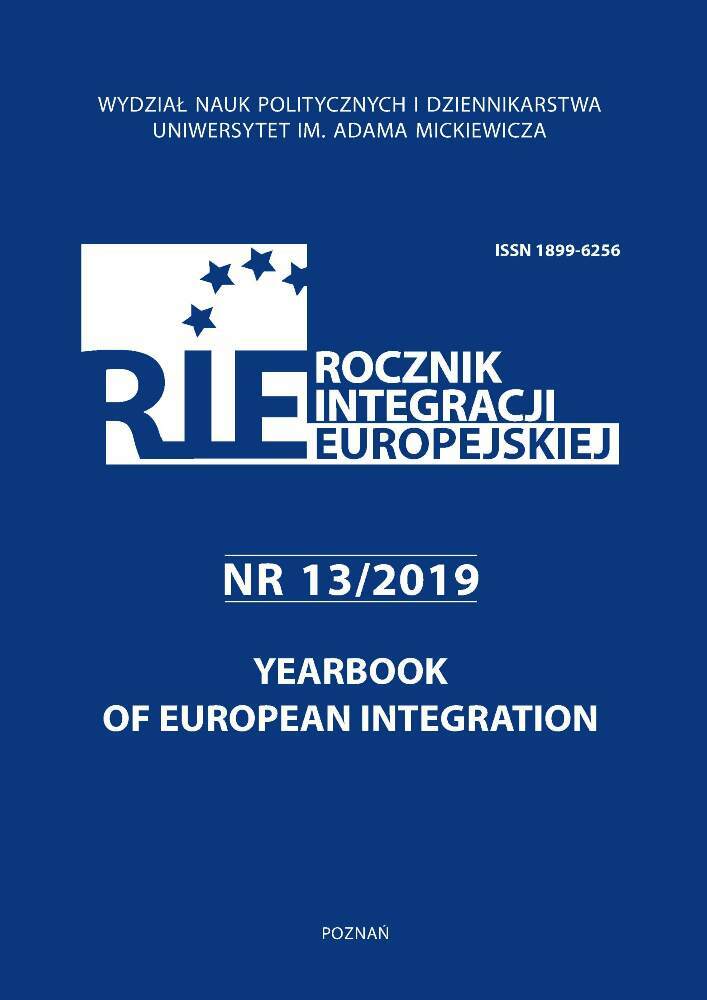Abstrakt
Celem artykułu jest wskazanie głównych przyczyn (błędnego) postrzegania w polityce USA i Unii Europejskiej wobec Iranu. Błędne postrzeganie intencji Iranu było jedną z głównych przyczyn wykolejenia porozumienia nuklearnego JCPOA było wycofanie się z niego USA. Analizowanie (błędnego) postrzegania ma istotny wpływ na formułowanie polityk i strategii wobec Iranu umożliwia głębsze spojrzenie w skomplikowane relacje pomiędzy Zachodem a Iranem
Finansowanie
Publikacja finansowana przez NAWA Polską Narodową Agencję Wymiany Akademickiej PPN / BEK / 2018/1/00323 / DEC / 1.
Bibliografia
BBC (2019), Iran nuclear deal breaches not yet significant, EU says, https://www.bbc.com/news/world-middle-east-48995866, 20.07.2019.
Cherkaoui M. (2018), Trump’s Withdrawal from the Iran Nuclear Deal: Security or Economics?, http://studies.aljazeera.net/mritems/Documents/2018/5/10/d6a4c71882da438e9de76152c7e3a8dc_100.pdf, 20.07.2019.
Cronberg T. (2018), No EU, no Iran deal: the EU’s choice between multilateralism and the transatlantic link, “The Nonproliferation Review”.
Dunn G. (2018), Iran Sanctions 2.0: the Trump administration completes its abandonment of the Iran nuclear agreement, November.
Esfandiary D. (2013), Assessing the European Union’s Sanctions Policy: Iran as a case study, EU nonproliferation papers, no. 34, December 2013, http://www.sipri.org/research/disarmament/eu-consortium/publications/nonproliferation-paper-34, 20.07.2019.
Feierstein G. M. (2018), Trump’s Middle East Policy at One Year Policy Lacks Strategic Coherence Despite Rhetoric, “Middle East Institute”.
Fiedler R. (2013), Hard power dismisses soft power – the United States’ relations with the Iranian Islamic Republic in the shadow of the nuclear program, “Przegląd Politologiczny”, no. 3.
Fiedler R. (2017), European Union and the Islamic Republic of Iran, in: Political Dilemmas of the Arab and Muslim World, eds. R. Ożarowski, W. Grabowski, Rambler Press.
Fiedler R. (2018), Domestic sources of Iranian foreign policy. Variables and options, in: Beyond Europe. Politics and Change in Global and Regional Affairs, eds. R. Fiedler, A. Stelmach, Logos Verlag, Berlin.
Final Assessment on Past and Present Outstanding Issues regarding Iran’s Nuclear Programme, International Atomic Energy Agency, https://www.iaea.org/sites/default/files/gov-2015-68.pdf, 20.07.2019.
INSIGHT: Iran Sanctions Latest changes & additions (2019), https://www.skuld.com/topics/legal/sanctions/iran/insight-iran-sanctions/, 20.07.2019.
Jervis R. (1976), Perception and Misperception in International Politics, Princeton University Press, Princeton-New York.
Jervis R. (2011), Why Intelligence Fails: Lessons from the Iranian Revolution and the Iraq War, Cornell University Press.
Joint Comprehensive Plan of Action, (JCPOA), July 14, 2015, https://www.justsecurity.org/wp-content/uploads/2015/07/271545626-Iran-Deal-Text.pdf, 20.07.2019.
Katzman K. (2018), Iran: Politics, Human Rights, and U.S. Policy, Congressional Research Service, March 26, 2018; https://fas.org/sgp/crs/mideast/RL32048.pdf, 25.06.2019.
Kaussler B. (2008), European Union constructive engagement with Iran (2000–2004): An exercise in conditional human rights diplomacy, “Iranian Studies”, 41(3).
Kaussler B. (2014), Iran’s Nuclear Diplomacy. Power politics and conflict resolution, London–New York.
Kazemzadeh M. (2018), The sources of the Middle East’s crises and American grand strategy, “Comparative Strategy”, vol. 37(1),
Osiewicz P. (2018), EU-Iran Relations in the Post-JCPOA Period: Selected Political Aspects, “Przegląd Politologiczny”, nr 2.
Pillar R. P. (2013), The Role of Villain: Iran and U.S. Foreign Policy, “Political Science Quarterly”, vol. 128, no. 2 (Summer).
Pohl A. (2018), Główne determinanty polityki bezpieczeństwa Izraela w XXI w., Poznań.
Posch W., (2015), Iran and the European Union, Iran Primer, USIP, http://iranprimer.usip.org/resource/iran-and-european-union, http://eeas.europa.eu/statements/docs/2013/131219_04_en.pdf, 20.07.2019.
Rezaei F. (2018), The Three Specific Clusters of Concerns, “Insight Turkey”, vol. 20, no. 2.
Shine S., Catran A. (2017), Europe-Iran Relations One Year after the Sanctions were Lifted, “INSS Insight” no. 888, January 16.
Shorey S., Howard P. N. (2016), Automation, Big Data, and Politics: A Research Review, “International Journal of Communication” 10.
Tensions between Iran and the West have the Gulf states on Edge (2019), https://www.economist.com/middle-east-and-africa/2019/07/25/tensions-between-iran-and-the-west-have-the-gulf-states-on-edge, 20.07.2019.
Trump D. (2017), Remarks by President Trump to the 72nd Session of the United Nations General Assembly, White House, September 19.

